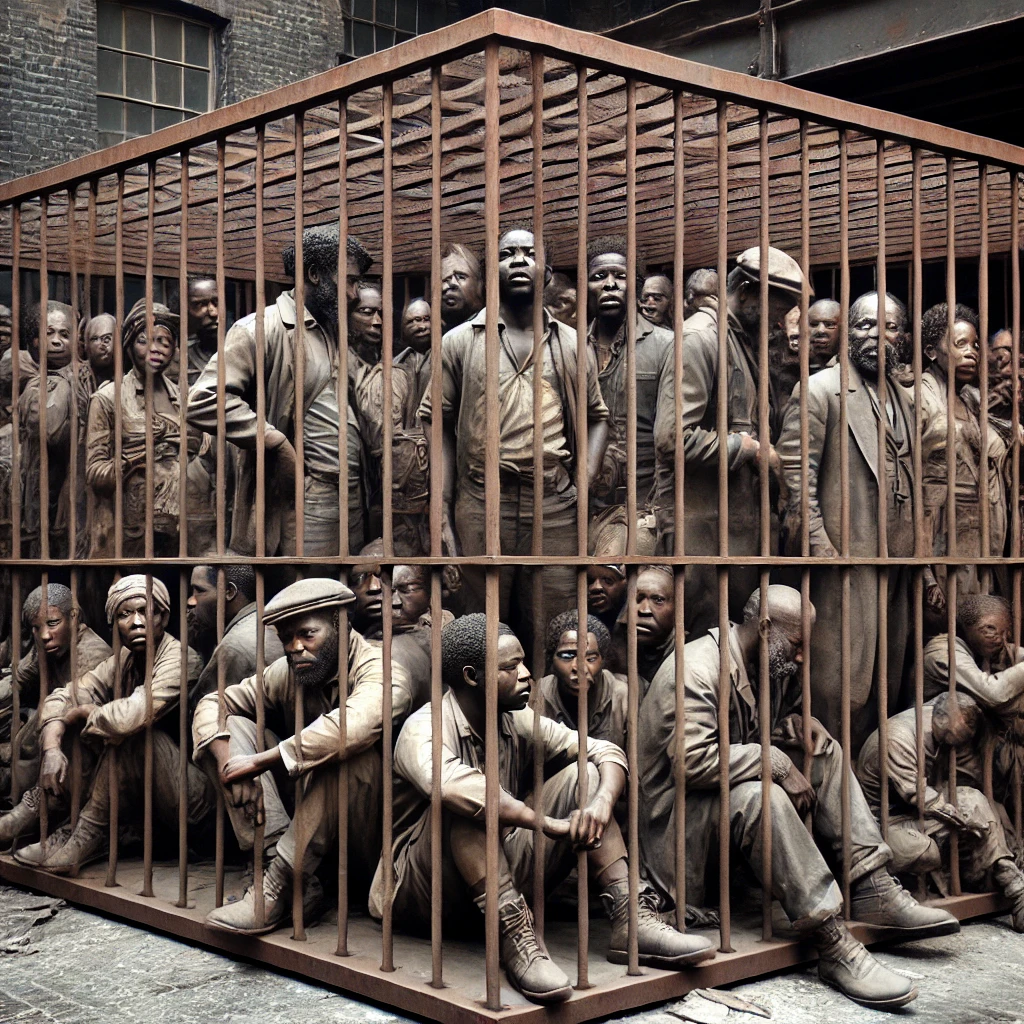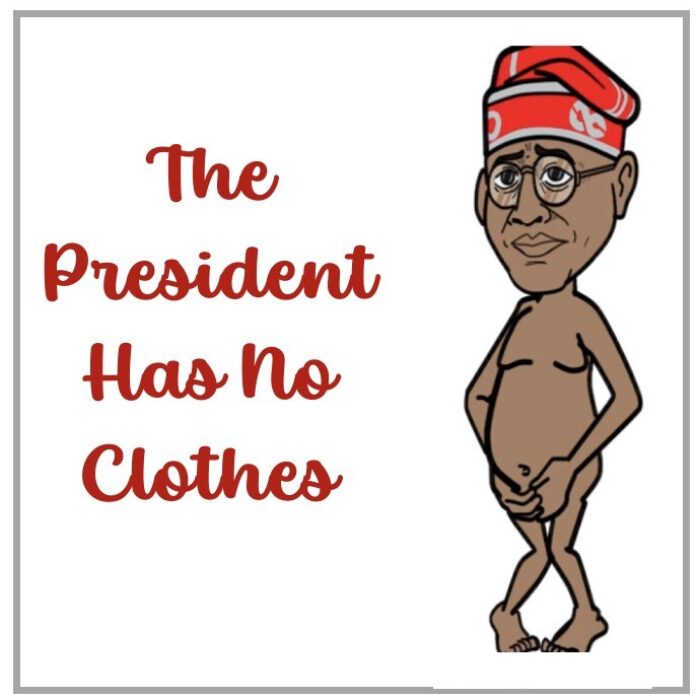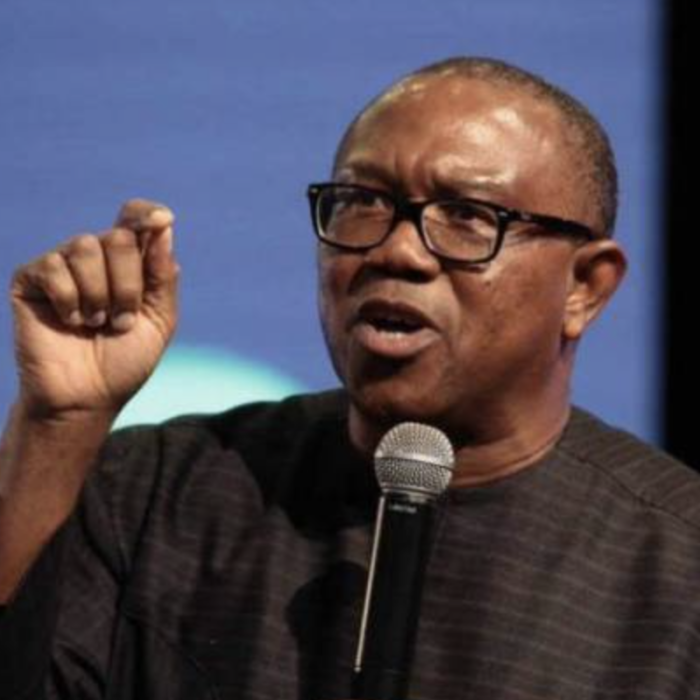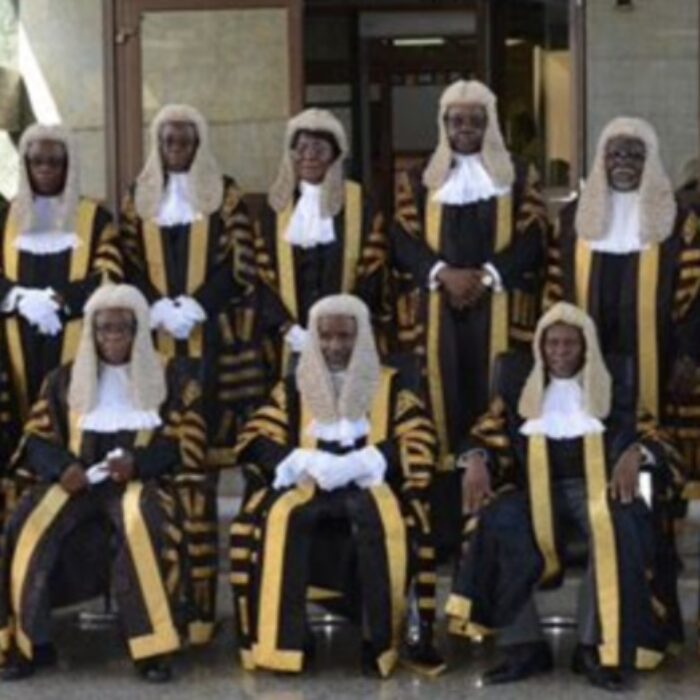By The Editorial Board
Under the leadership of President Bola Tinubu, Nigeria is witnessing the systematic erosion of its democratic values. What started as isolated actions to suppress dissent has evolved into a chilling campaign reminiscent of fascist regimes.
Fascism, marked by authoritarian control, suppression of opposition, and state-sponsored indoctrination, is now creeping into Nigeria’s political landscape.
The complacency of Nigerians only serves to accelerate the entrenchment of this dangerous ideology, threatening the country’s democracy and fundamental human rights.
If left to take root, very few will be spared from its oppressive grip, as civil liberties will be eroded, dissent will be silenced, and power will be concentrated in the hands of a few oppressors.
The foundation of our society, built on diversity and freedom, risks being torn apart, leaving future generations to inherit a nation stripped of its democratic values and individual freedoms.
Erosion of Civil Liberties
One of the first signs of our nation’s descent into fascism is the increasing suppression of civil liberties. The arrest and detention of Nigerian Labour Congress (NLC) President Comrade Joe Ajaero by the Department of State Services (DSS) is emblematic of the government’s disregard for the rule of law.
Amnesty International has also documented the unlawful harassment, arrest, and detention of more than 50 journalists since Tinubu took office. Such actions evoke memories of authoritarian regimes that use fear and repression to control public discourse and strip citizenship from dissidents.
Among the most troubling examples is the arrest of Daniel Ojukwu, a reporter with the Foundation for Investigative Journalism (FIJ). Ojukwu was detained for allegedly violating Nigeria’s controversial Cybercrime Act, a law often criticized as a tool for censoring criticism of the government.
Ojukwu was working on an investigation into the Tinubu administration, further illustrating the regime’s intent to stifle independent journalism.
Furthermore, the invasion of the Abuja office of the Socio-Economic Rights and Accountability Project (SERAP) by DSS operatives reveals the administration’s desire to quash civil society organizations that demand transparency and accountability.
These unjustified attacks on the media and civil society reveal the extent to which the government is willing to weaponize its security forces to maintain control and silence the voices of dissent among our people.
Indoctrination and Control
In addition to suppressing dissent, the Tinubu administration has initiated an indoctrination campaign aimed at enforcing loyalty and compliance.
According to insiders who spoke on condition of anonymity to avoid retaliation, APC leaders are required to sign formal pledges committing to uphold “discipline” and follow the “Order”—a strict list of prohibited activities. These include leaking information to the press, publishing content deemed “improper,” or engaging with foreign entities without Tinubu’s explicit approval.
The widely reported incidence of the Nigerian Senate singing the allegiance song, “On your mandate, we shall stand,” during the President’s budget presentation reflects a troubling shift in loyalty—not to the nation, but to the cult of personality that Tinubu has become.
This tactic mirrors the fascist practice of demanding absolute loyalty to the leader and controlling the flow of information within the ruling party.
Moreover, several local government and community leaders have confirmed that the administration has enlisted local officials and community groups to monitor anti-Tinubu factions, effectively ensuring that dissenting voices at the grassroots level are silenced.
This method of surveillance creates an atmosphere of fear, discouraging people from voicing their opposition, much like how secret police and informant networks were used by fascist regimes like Mussolini’s Italy.
The Use of State Security Forces Against Protesters
The government’s deadly response to the #EndBadGovernance protests provides a clear example of its willingness to use violence to suppress opposition. State security forces were deployed to shoot and kill over 30 peaceful protesters, further entrenching a culture of fear and repression.
This deadly use of force is emblematic of fascist regimes, which often rely on violent crackdowns to maintain control. The #EndBadGovernment protests, which demanded an end to police brutality and corruption, were a critical turning point that exposed the regime’s authoritarian impulses.
The Silencing of Dissent Abroad
In a further escalation, the Tinubu administration has intensified its crackdown on dissent by targeting Nigerians abroad. Reports from the diaspora indicate that the Nigerians in Diaspora Commission (NIDCOM) has allegedly threatened groups it perceives as anti-government, going as far as pressuring foreign governments to deport Nigerians who criticize the regime.
This tactic underscores the administration’s determination to suppress opposition and control narratives even beyond Nigeria’s borders.
Additionally, some Nigerian citizens in the diaspora who have criticized the Tinubu administration claim their passport renewals were delayed or withheld indefinitely without explanation. These reports suggest that Nigerian embassies and consulates may have been instructed to deny visas and passport renewals to those critical of the government.
This alleged strategy, if proven, mirrors the tactics of totalitarian regimes like North Korea, where dissent is suppressed even among citizens living abroad, underscoring the administration’s broader efforts to stifle opposition globally.
Alarmingly, there are credible allegations that hitmen have been hired to target Nigerians abroad who are listed on the administration’s so-called “State Enemy” list. These extrajudicial actions resemble the extreme tactics used by fascist regimes to eliminate perceived threats beyond their borders. Reports indicate that the governments of Canada, the US, and the EU are aware of these potential threats.
Attempts to contact Nigerian government offices in Abuja and embassies for confirmation or denial of these allegations have gone unanswered.
Why is the International Community Silent?
A crucial question arises: Why is the international community silent in the face of the Tinubu administration’s blatant violations of civil liberties and human rights?
Despite mounting evidence of repression, foreign governments and international organizations have largely remained mute. This inaction undermines the credibility of global institutions like the United Nations, which claim to champion democracy and human rights.
The international community must act swiftly to address the situation in Nigeria. No U.S. or EU interests in Africa will endure if Nigeria is allowed to descend into fascism. As Nigeria goes, so goes the rest of Sub-Saharan Africa.
Targeted sanctions against high-ranking Nigerian officials responsible for these abuses could exert the necessary pressure on the government to reconsider its authoritarian tactics.
Additionally, foreign governments must offer support to Nigerian civil society organizations that are working to hold the government accountable. Diplomatic pressure, combined with support for freedom of speech and independent journalism, is essential to preventing further deterioration of Nigeria’s democracy.
The Consequences of Fascism
The consequences of allowing fascism to take root in Nigeria are far-reaching and dangerous. Historically, fascist regimes have led to widespread human rights abuses, economic decline, and international isolation. In Italy, Mussolini’s regime dismantled democratic institutions, and dissenters were imprisoned, exiled, or executed.
If Tinubu administration’s turn to fascism is left unchecked, its brand of fascism could surpass the brutality of the man Tinubu once opposed during his time at NADECO: General Sani Abacha.
Abacha’s government (1993-1998) is infamously remembered for its extreme authoritarianism, marked by severe human rights abuses, silencing of opposition through intimidation, imprisonment, and even extrajudicial killings.
Abacha’s regime’s ruthlessness, like what we currently witness with the Tinubu administration, reached its peak with the execution of Ken Saro-Wiwa and the Ogoni Nine, actions that led to Nigeria’s international isolation.
What’s even more alarming is that Abacha ruled as a military dictator in a regime that lacked any pretense of democracy, but Tinubu operates under the guise of a constitutional democracy.
While Abacha’s authoritarianism was expected within a military junta, Tinubu’s abuses are more insidious because they occur in a system where democratic principles and the rule of law are supposed to protect citizens’ rights.
Tinubu’s administration uses the institutions of democracy—parliament, the judiciary, and law enforcement—not to safeguard freedoms, but to suppress them, turning a constitutional democracy into a façade for an authoritarian regime.
This betrayal of democratic norms by an elected leader represents a far graver danger to Nigeria’s future than even the brutal military dictatorship of Abacha.
If Nigeria continues down this path, the country could face similar outcomes. The suppression of free speech and civil liberties will likely lead to increased social unrest and violent repression. Ultimately, no one—whether rich or poor—will be spared from the fallout.
Economically, Nigeria risks alienating foreign investors who will be wary of the political instability and authoritarian control over industries. The long-term consequences could include widespread poverty, isolation from the global economy, and an irreversible loss of democratic freedoms.
Tangible Steps to Avoid Full Descent into Fascism
To prevent our nation from fully descending into fascism, immediate action is necessary. Civil society must mobilize to resist the erosion of civil liberties. Peaceful protests, legal challenges, and public awareness campaigns are crucial to holding the government accountable.
The international community also has a role to play. Targeted sanctions, diplomatic engagement, and public condemnation of human rights violations are critical.
As challenging as it may be given the issue of judicial corruption, it is critical that Nigeria’s judiciary remains independent and safeguarded from executive interference. The courts must serve as a vital check on authoritarian power, while a free press must be empowered to report on government actions without fear of reprisal or persecution.
If we manage to survive this administration until 2027, we will need a complete overhaul of the presidency and the National Assembly. We must unite and vote them out of office. We must drain, clean and sanitize the cesspool in Abuja.
And if the election is once again rigged, Nigerians cannot afford to stand by silently. The rightful winner must be restored, and if INEC and the judiciary—both compromised under this regime—cannot be relied upon to deliver justice, then the people must rise in mass peaceful protest and sit-ins to defend democracy.
The future of Nigeria depends on the courage of our citizens to confront oppression and demand true leadership that reflects the will of the people.
In sum, Nigeria stands at a dangerous crossroads. The rise of authoritarianism under Tinubu’s administration poses a direct threat to the nation’s democracy and civil rights. The suppression of opposition, control of media, and violent repression of peaceful protesters are all hallmarks of a fascist regime.
If left unchecked, Nigeria could become another example of a nation where democracy crumbles under the weight of authoritarian rule. But there is still time to resist.
Nigerian citizens and Civil society, with support from the international community, must act swiftly and decisively to prevent Nigeria’s descent into fascism. Nigerians must awaken to the threats facing their democracy before it is too late to reverse the damage.




